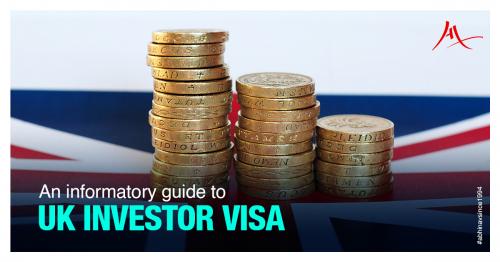Starting a self-employed business under Canada Self Employed Visa
Having a Canada Self Employed Visa is one of the most significant accomplishments in a business professional's life. The program allows you to set up a self-employed business and provides unconditional permanent residency to the applicant and his/her family, along with all the residency benefits. The country has a great business environment framework with one of the lowest corporate taxes at 15%. It will be a great place to start your self-employment business activities.
Below are the steps to start a Self-employed business in Canada:
Sole proprietorship – Self-employed professionals must follow the sole proprietorship business model in Canada, allowing the applicant to set up a business independently; therefore, there is no need to incorporate the company. Under this business model, the owner does not have a separate legal status from their intended business. And, the owner is solely responsible for the decision-making and business risks and receiving all profits.
Business registration – After attaining Canada Immigration, self-employed individuals must first undertake Canadian business registration by registering the business name. The new business owners must register within the jurisdiction of your intended province or territory. The procedure for setting up a business is the same, but it can differ in each province and territory.
Tax for sole proprietor –The money earned by the Sole Proprietor will be considered as personal income, and they must report gain or loss on a T1 income tax and benefit return. Along with that, you must file Form T2125 Statement of Business and Professional Activities. For taxes, federal and provincial income taxes will apply for a sole proprietorship.
Below are the steps to start a Self-employed business in Canada:
Sole proprietorship – Self-employed professionals must follow the sole proprietorship business model in Canada, allowing the applicant to set up a business independently; therefore, there is no need to incorporate the company. Under this business model, the owner does not have a separate legal status from their intended business. And, the owner is solely responsible for the decision-making and business risks and receiving all profits.
Business registration – After attaining Canada Immigration, self-employed individuals must first undertake Canadian business registration by registering the business name. The new business owners must register within the jurisdiction of your intended province or territory. The procedure for setting up a business is the same, but it can differ in each province and territory.
Tax for sole proprietor –The money earned by the Sole Proprietor will be considered as personal income, and they must report gain or loss on a T1 income tax and benefit return. Along with that, you must file Form T2125 Statement of Business and Professional Activities. For taxes, federal and provincial income taxes will apply for a sole proprietorship.
Business Number & Canada Revenue Agency - The Canada Revenue Agency (CRA) uses a Business number to confer and liaise with Canadian businesses to deal with federal, provincial, or local governments. The Business number is a nine-digit unique number assigned to your business as a tax ID if you register for any of the four following major program accounts:
• Goods and services tax/harmonized sales tax (GST/HST) - if your business collects GST/HST
• Payroll deductions - If your business pays employees
• Corporate income tax - If your business is incorporated
• Import/export privileges – if your business imports or sells goods or services abroad
After attaining Canada Visa, if you register your business in one of the CRA mentioned above programs, you will receive a unique Business Number. And, if you don't fall under any of the four categories above, you don't need a Business Number. For a sole proprietor qualified as a Small Supplier, which means you are earning less than $30,000 annually from business activities, you could operate without a Business Number.
If you wish to grab this opportunity to set up a business and settle in Canada, you can reach us @ 8595338595 or on web@abhinav.com for free immigration counseling and guidance on Canada Self Employed Visa.
• Payroll deductions - If your business pays employees
• Corporate income tax - If your business is incorporated
• Import/export privileges – if your business imports or sells goods or services abroad
After attaining Canada Visa, if you register your business in one of the CRA mentioned above programs, you will receive a unique Business Number. And, if you don't fall under any of the four categories above, you don't need a Business Number. For a sole proprietor qualified as a Small Supplier, which means you are earning less than $30,000 annually from business activities, you could operate without a Business Number.
If you wish to grab this opportunity to set up a business and settle in Canada, you can reach us @ 8595338595 or on web@abhinav.com for free immigration counseling and guidance on Canada Self Employed Visa.






Comments